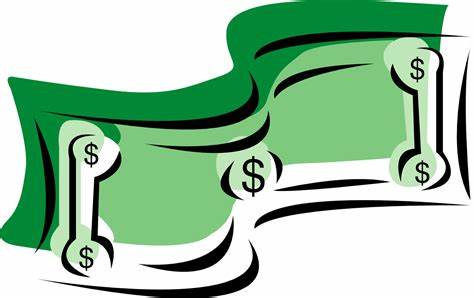Which Debt to Pay First, written by Erica Sandberg
Owe everyone under the sun and have no idea who should get repaid first, second and so on? It’s easy to get confused. You might be tempted to assuage the creditor that’s screaming the loudest, which is usually not the best plan.
Let’s say you have at least some of the following debts:
Medical bills
Payday loans
Owed vehicle payments
High interest unsecured loans
Owe money to friends or relatives
Monetary judgments
Collection accounts
Back child support payments
Income taxes
Credit card balances
Car title loans
Defaulted student loans
Delinquent mortgage
Overwhelming, right? Absolutely! So here is the list rearranged by order of repercussions. The debts with the worst consequences take priority over those with those that aren’t quite so dire.
- Back child support payments.
This is the mother of all financial obligations. If you don’t pay, you could be found in contempt of court. After that, up to half of your net wages (including unemployment benefits) may be garnished, your driver’s, sport, and professional licenses may be revoked. Your car could be booted, tax refund intercepted, and a lien placed on your property. Public humiliation is permitted in some jurisdictions, and you could even spend time in jail.
- Income taxes.
Owe the government and high interest and fees will accumulate very quickly. A Federal tax lien may be placed on your property (and listed on your credit reports). The government may also levy (seize) property and garnish your wages. Money in bank accounts, including what you’ve saved for retirement may be claimed, and your home or vehicle may be sold to pay for the debt.
- Car title loans.
The interest for these loans is usually 25% per month, equaling an annual rate of 300%. Fall behind and the lender can repossess the car. How will you get to work? Go grocery shopping or drive the kids to school or the doctor? Eventually the vehicle will be sold at auction, and depending on the state you live in, you may also be required to pay the deficiency: the difference between what they sell it for and how much is left on the loan.
- Owed vehicle payments.
You need to be careful with regular old car financing too. Pay late and your credit report will suffer. If the vehicle is on the new side, the lender may repossess it after only a few skipped payments. After that you’ll face the same problems as the car title loans.
- Delinquent mortgage.
One might think that a home is more important than a car and that is true, however it can take a lot longer for a home to be foreclosed on than for a car to be repossessed. In fact, it takes on average of 19 months to process a foreclosure. That gives you time to deal with the problem – which you must do or you will be forced to find another place to live, and this time with a terrible credit rating which makes you an undesirable tenant or home loan borrower.
- Defaulted student loans.
After about nine months of nonpayment, a federal student loan will be in default. The credit damage begins after the first missed payment, and will get progressively worse until the account is assumed by a collector. Fees and interest will be piled on. Up to 15% of your wages may be garnished and your tax refund can be intercepted without a lawsuit. With a lawsuit, the lender can take an even higher percentage of your wages.
- Payday loans.
The interest on these loans is astronomical, amortized yearly at 400% or more. If you don’t pay quickly, the fees swell horribly. Stop paying and the lender will either take you to court or send the account to a collection agency, which also may sue you. Lose the case and you’ll have a judgment on your credit report and post-judgment collection action can kick in, which is usually a wage garnishment. Depending on your state, the judgment can remain in effect for a decade or longer.
- Medical bills.
It’s hard to place these types of liabilities on this type of list because much depends on the amount owed. If the bill is for $35, the medical provider may eventually just let it go. But if it’s for $3,500, you will be facing aggressive collection action after just a few months of non-payment, and then lawsuits plus post-judgment collection action.
- Owe money to friends or relatives.
These personal loans are tricky. Some loved ones may not mind so much if you renege on the arrangement while others won’t be so forgiving. If its the latter, an individual can sue you. Chances are you’ll wind up in small claims court, and if you lose the case you could be forced to pay. But more tragic: irrevocable damage to important relationships.
- Unsecured loans and credit card balances.
These are basically the same when it comes to repercussion for not paying, so they tie for tenth place. Credit damage occurs with the first missed payment, of course, and it worsens over time. After about six months the lender will charge the account off (further poisoning your credit rating) and collection action and or lawsuits will take place.
- Monetary judgments.
Already owe a creditor that sued you for an unpaid debt? As long as the judgment is in effect, the judgment creditor can take what’s theirs with whatever means they have at their disposal, including liens and levies.
- Collection accounts.
And finally we come to debts that have landed in collection agencies. If you’ve ever had the pleasure of speaking with a person who works for one of these companies, you know they can sound mean and scary. So why do they fall to the bottom of the list?
Because if the debt is older than the statute of limitations for your state, there is nothing they can do to you except continue to list it on your credit report. After seven years, it can’t be reported any longer. On the other hand, if the collection debt is fresh, they can take legal action against you. The larger the debt, the greater this possibility is.
Now start to arrange your own array of obligations. As you can see, it’s not always linear – consider this list a guideline. For example, a family debt might be more crucial to you than your car. That’s OK. Just know what can happen if you fail to pay any of these creditors so you can make the most sensible and informed decision possible.
Which debtor on this list do you struggle with the most?
Start working on your credit today


